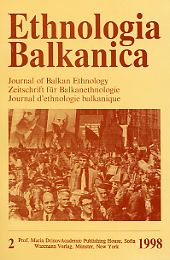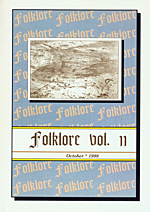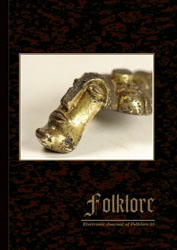Author(s): Asker Kartarı / Language(s): German
Issue: 02/1998
In 1978, Ilhan Başgöz published an article on Folklore Studies and Nationalism in Turkey. 20 years later, the present article attempts to supplement Başgöz’s work by focussing mainly on the development of Turkish ethnology and folkloristics in this period. The interest in folk culture arose already in the 19th century in the Ottoman Empire, when the various non-Turkish peoples strove for independence and their own nation states. Turkish intellectuals and army officers tried to offer them a new Ottoman identity that included all nationalities of the empire. In the early 20th century they reformed the state and granted the minorities new rights. Their attempts failed, which forced them to develop a new basis for holding the state together. The major factor was the construction of a separate Turkish identity; its roots were found – mostly by Ziya Gökalp and his friends – in history, literature, and the Turkish language. After the founding of the Turkish Republic, a new Turkish national culture was established, and folk culture was one of its main pillars. Folkloristics became a science – and a tool for building the nation.
The initiative of studying folk culture came from writers, not from scholars; folklore research was for a long time located in various associations whose journals published large amounts of collected materials, usually without reference to the ethnic group the materials were gained from. Turkish universities followed this road. In 1924, the Institute of Turkology was founded at Istanbul University, and several scholars of Turkish literature collected and studied folk literature and taught courses on it. In 1938, Pertev Naili Boratav began teaching at Ankara University, but his professorship was soon canceled because of his political views. 23 years later, a department of ethnology was established at the same university. At present, there are three professorships in social anthropology, three in folkloristics, and one in ethnology at Ankara University. More than a dozen universities have departments of Turkology where courses on folklore and folk literature are offered and relevant dissertations are written.
One of the major problems of Turkish ethnology and folkloristics is the continuing impact of nationalist ideology. This concerns a number of university teachers holding important positions. Because of their limited theoretical and methodological knowledge, they have largely failed to establish a sound basis for the discipline; instead, they continue to approach folk culture from a national perspective and guide their students in the same direction. On the other hand, scholars with more contemporary approaches are kept from relevant university positions. Unless the administrative structure of Turkish universities is reformed it will be very difficult to change the present situation of the discipline and to turn it into an analytical, comparative and independent ethnological discipline.
More...



